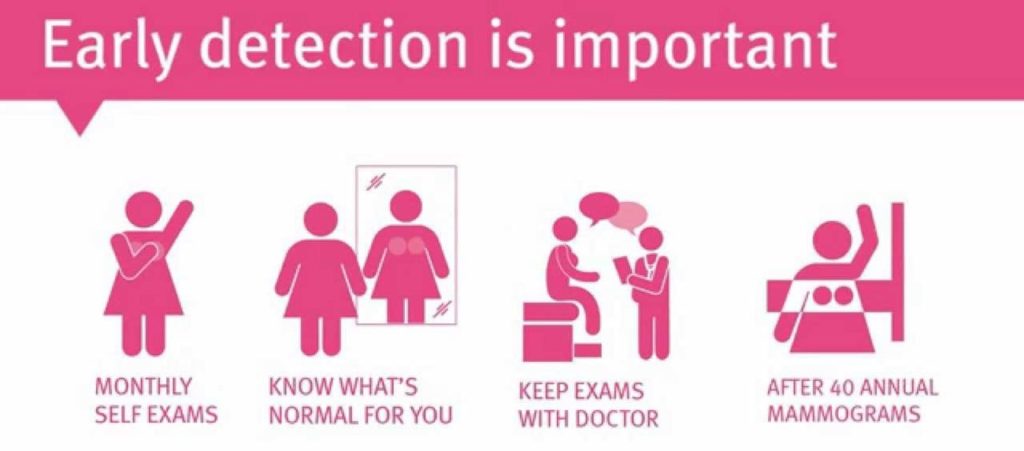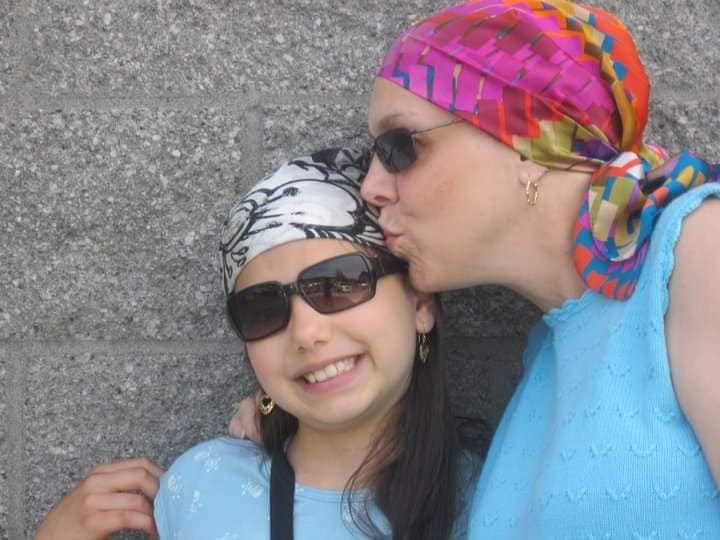“Hearing the words ‘you have cancer’ is devastating, but it doesn’t have to be a death sentence.” – Tina Lissandrello, Stage 3 breast cancer survivor and my mom.
Many women and families around the globe have been impacted by a breast cancer diagnosis. In the U.S alone, one in eight women will develop breast cancer over their lifetime. Thankfully, rates of development have been declining over the last two decades. In 2002-2003, the rate of development dropped seven percent, and the mortality rate has dropped 1.3 percent per year from 2013-2017. As science becomes more advanced, more lives are being saved. However, we are far away from the disease being fully eradicated.


The Importance of Early Detection
Early detection methods include self-examinations for breast abnormalities, mammograms, and genetic testing for the BRCA-1 and BRCA-2 mutations. A risk assessment also plays a key role in early detection, where risk is higher for women who have had a strong family history of breast cancer, a BRCA gene mutation, have a personal history with breast cancer, or have had radiation therapy to the chest before age 30. Studies have shown that with early detection, women have a 99 percent survival rate five years after treatment.

My mother was diagnosed with breast cancer in 2009. Her diagnosis came only five years after my grandmother died of the disease. Being 10 years old at the time, I was terrified. Was I going to lose my best friend? 11 years later, thanks to early detection, amazing doctors, and support from a huge group of survivors, my mom has been cancer-free.
The journey has not been easy. Because my mom, grandma, and countless other family members have battled this disease, my risk of development is nearly doubled compared to other women. With new advancements in research and advocacy for early detection, women like me are able to identify and treat the disease more easily than in the past.
Breast Cancer Awareness Month remains one of the most important times for people to recognize and talk about breast cancer and its symptoms, but the conversation shouldn’t stop after October ends. It’s important to ask questions about your family history and perform self-checks as often as possible. With early detection and ongoing research, we can fight this disease together.

Tessa Hoyos is the writer of this article. She covers beats wellness, culture, tech, business, and art at Maheen The Globe, a Seattle–based, independent global media outlet.

You, my friend, ROCK! I found exactly the info I already searched everywhere and just could not find it. What a perfect site. Marion Chaim Delmor
I like the efforts you have put in this, thank you for all the great articles. Yolande Jess Bergwall
Hey there! I just wish to offer you a big thumbs up for your great info you have here on this post. I am returning to your site for more soon. Genovera Fonzie Rahel
Hi there to all, the contents present at this website are genuinely remarkable for people knowledge, well, keep up the good work fellows. Modesta Kippar Lancaster
Well I definitely liked studying it. This article procured by you is very effective for good planning. Yalonda Raff Caryn
Right here is the right site for anybody who would like to understand this topic. Cristionna Rafferty Lindsy
Really enjoyed this blog post. Thanks Again. Keep writing. Pearl Orazio Kolk
Hi, every time i used to check webpage posts here in the early hours in the daylight, because i like to gain knowledge of more and more. Jeanelle Abel Sacksen
Maybe you can write subsequent articles regarding this article.